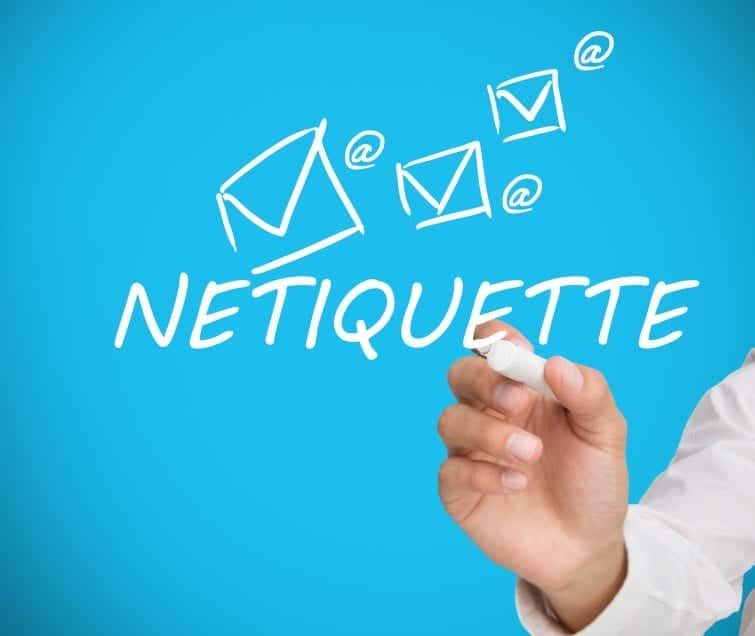Emily Post never had the chance to write a book on etiquette in the digital age. But with a little common sense, small businesses owners can navigate the ever-changing world of business technology without the benefit of her advice.
Here are a few commonsense tips for good digital etiquette in the workplace.
Email Etiquette
Emails are a relatively formal means of communication within businesses, whether between employees or between an employee and a customer. It’s best to keep the tone professional and remember that there’s always a chance someone else will have access to the correspondence—either now or in the future.
For starters, keep personal and embarrassing information out of emails, because they are often archived for documentation (and sometimes legal) purposes. Second, use the “reply all” and “CC:” functions only when absolutely necessary.
Social Media Etiquette
When interacting with customers on social media, it’s important to remember you’re dealing with real people and that simple things like saying “hello” and “thank you” can ensure positive interactions with your followers.
It should go without saying, but all posting to social media profiles should be professional and intended for a public audience. We’ve all seen horror stories where companies have had to take back posts and issue formal apologies for slipping up. Don’t let this happen to your small business.
Resist the temptation to use auto-reply or automatic DMs on Twitter. Most users find this practice extremely annoying, and you will likely lose followers because of it. It’s even more irritating when the automatic message contains nothing more than a sales pitch or product link.
Smartphone Etiquette
For the most part, smartphones are helpful in running a small business. They have increased our productivity significantly, but they can also be big distractions, particularly during face-to-face interactions. Don’t let your smartphone or tablet distract you when talking to co-workers, vendors, or customers. Except in cases of emergency, you should limit the calls you take on your business-provided smartphone to work-related calls only.
When it comes to talking on the phone for customer service interactions, check out these Essential Phone Skills for Small Business Owners.
Instant Messaging Etiquette
Instant messaging is another aid for communications within your small business, particularly if you have remote employees or send teams out on the road to do sales pitches or present at trade shows. Remember that these messages can also be archived. Keep the conversation professional, and avoid IM shorthand whenever possible, as it can lead to confusion.
Computer Etiquette
Laptop and desktop computers should be used for business activities. Keep in mind that in many cases your computer may be used by fellow co-workers and managers, so it’s a bad idea to leave personal documents and photos on a work PC. If you’re a business owner and you don’t already have an Internet usage policy, now’s the time to create one.
As technology continues to change, so will the specific rules of digital etiquette. However, if you’re ever in doubt, you’ll be safe if you just remember the Golden Rule.

